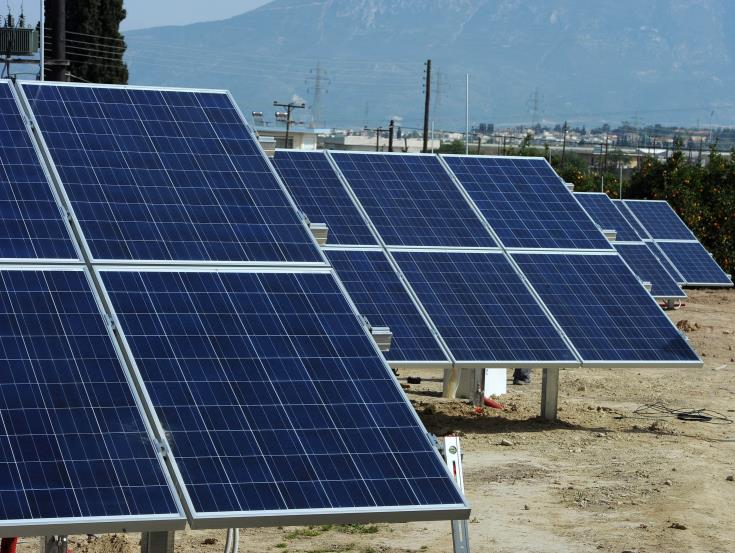A lack of desire and disregard have left Cyprus consumers at the mercy of hiking energy prices while the country’s grid is on the verge of crisis, say environmentalists.
While consumers struggle with inflation, electricity bills will certainly bulge as the Electricity Authority is called to pay an increased cost for emitting greenhouse gases.
Furthermore, decisions that point to poor planning by authorities have meant that the penetration of Renewable Energy Sources (RES) has done next to nothing to bring down the cost of energy.
Charalampos Theopemptou, the leader of the Cyprus Greens, warned the island’s grid could be in trouble as bad planning means it cannot take on more RES projects.
Media reports claim the state Electricity Authority of Cyprus (EAC) will have to pay €300 mln of taxpayers’ money, 21% more than last year, for purchasing EU greenhouse gas emission allowances.
The EAC paid €248 mln last year. The penalty for greenhouse gas emissions is rolled down to consumers.
The EAC believes the amount will be around €283 mln
It is estimated that with current carbon prices, the purchase of emission rights corresponds to 29% of EAC’s production costs.
Within the first two months, the price adjustment for greenhouse gas allowances shot up to 7.8 cents a kilowatt hour from 5.8 cents.
At the same time, the current EAC fuel price adjustment is 16.7 cents per kilowatt hour.
Based on this data, EAC is estimated to pay almost €300 mln in 2023 for the emission of 3 mln tonnes of carbon dioxide, said a Phileleftheros report.
Last year, the authority paid €248 mln with an average rights purchase price of €80 per tonne; in 2021, it was €165 mln with an average price of €54, and in 2020 €74 mln with an average price of €25 per tonne.
“Authorities have known for decades that we would have to pay hefty fines if no action were taken.
“We knew since 2005 when the EU Emissions Trading Scheme was launched that we would have to pay increasingly higher fines for CO2 emissions,” said Theopemptou.
He explained that EU authorities had identified 13 establishments with high emissions, with three EAC power stations on the list.
Cyprus was given a grace period to adapt, with free emission rights.
Between 2013 and 2019, Cyprus was given a derogation by the European Commission and was allocated free emission rights, with the cost paid by the EAC ranging from €336,000 – €67 mln, shooting up to €248 mln last year.
In comments to Astra Radio on Friday, EAC Spokesperson Christina Papadopoulou said that, on average, last year, the cost of emission rights amounted to €80 per tonne, while this year, they expect it to reach €95 per tonne.
She said the cost of EAC tariffs increased by 17% compared to last year and noted that if state subsidies were not in force, the increase would be much higher.
“Because the ETS functions very much in the fashion of a Stock Exchange, with the increase in demand, it is only natural that prices of emission will continue to rise,” said Theopemptou.
He argued that authorities had done almost nothing for the past 18 years, leaving everything to the last minute.
“In recent years, the government had been rushing to push through RES projects by private companies and promoting the installation of photovoltaic systems at homes”.
However, as Theopemptou added, this has been done without planning, with indications that the authorities involved had the motive of profit.
“As more RES projects came online, the cost of electricity should have dropped significantly, as the cost of producing one KWh with RES is on average 5 cents, compared to 18 cents for a KWh produced with conventional fuel.
“However, we are corrupt.
“The EAC guaranteed RES producers would be paid the cost of avoidance, meaning that they would be compensated with the price of energy produced with fuel.
“One could easily say that this was done intentionally to favour businesses stepping into the sector”.
Pulling the plug
Analysts have also criticised authorities for the lack of planning in photovoltaic projects and encouraging people to instal home solar systems without considering the island’s “fragile transmission system”.
Talking to the Financial Mirror, energy analyst Sotiris Kyprianou said authorities have been trying to engage the public in efforts to reduce CO2 emissions by installing home photovoltaic systems.
But the EAC still has no plan for how new RES projects and photovoltaic home systems will be deployed in the grid, which could lead to the plug being pulled.
He argued that Cyprus’s Transmission and Distribution system could not handle more energy-producing units.
“There are two main issues with the electricity grid and solar energy that need to be addressed.
“The first issue is the grid’s capacity to handle more solar energy. Currently, the grid has reached its maximum capacity”.
Kyprianou said that limitations of the electricity grid could endanger efforts to reach decarbonisation goals set by the EU for 2030.
The second issue is even more significant, argued Kyprianou, noting that if not addressed, whole areas could suffer from blackouts.
“To maintain the security of the electricity system, the Electric Authority of Cyprus wants to keep standby and running two steam turbines in Vasiliko and two in Dhekelia, which can provide a minimum of 220MW of generation.”
The issue occurs when electricity demand is low and solar generation is high, with the Transmission System Operator (TSO) forcing solar parks to switch off to maintain the 220MW minimum generation level.
“Big solar parks can reduce their output to certain levels without shutting down; unfortunately, smaller solar producers and residential users with ripple control >8kW cannot”.
This, as he said, will lead the authority to exclude these producers, mainly households, completely from the grid.
“Without any adjustments until 2025, with the rate at which solar energy is entering the market, I expect residential areas or houses with high concentrations of solar energy to be shut off completely, leaving people without power,” warned Kyprianou.










